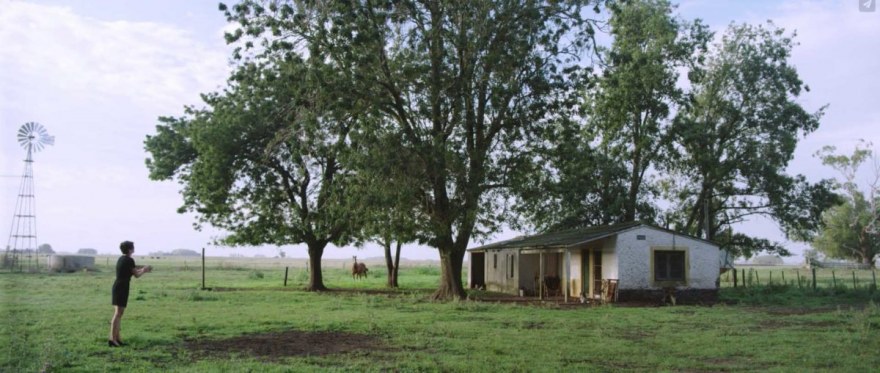Tea time with Destete
An interview with Inés Gowland, director of Destete
What does the title refer to here?
Destete, or weaning in English, is the process of introducing an infant mammal to what will be its adult diet and withdrawing the supply of its mother’s milk. In humans, that is a gradual process, but with cattle it’s a harsh separation. One day cow and calf get divided, and both cry out for each other for days, the intense mooing can be heard from miles away. Destete refers to that harsh separation that takes place without notice and without care.
Can you tell us a about the filming location? Is the farm somewhere you knew well?
We filmed near Ayacucho, a small town in the province of Buenos Aires, where I’ve been lucky to spend most of my holidays. Knowing the area and the people well, I was able to scout with certain freedom to find the perfect fit for the story. The house we ended choosing was one I had visited as a child, and remembered with fondness, so it was a privilege to shoot in it.
What is Ernesto’s role in the farm? Is Teresa’s situation fairly common?
Ernesto is in charge of the farm on a daily basis. He takes care of the land, and works with the owner to keep things in place, like moving the cattle from place to place, overseeing crops, etc. His role and relationship with the land can lead to him becoming a loved member of the extended family of the owner, and that can sometimes make the farmer feel somewhat entitled and possessive of the place. When owners change, that comfort and status quo are threatened. What’s common about Teresa’s situation is the way in which she chooses to manage things, with certain disdain for tradition and recklessness towards people from different social classes.
What was it like working with horses?
We lucked out with all the animals, actually. Since all belonged to the farm, there was nothing out of the ordinary for them. The horses specifically were quite easy to handle because they were so tame, and we only had a few shots that required actual riding. We got lucky that the cows needed to be checked that same week for pregnancy, so we scheduled our big cow scene around that, because we knew the real farmers and veterinarian would be working, so it wasn’t on the crew to manage that. However, I must say that by the end of the day, after shooting amongst 400 cows, we had forgotten what silence sounds like.
What are your future projects?
At the moment I’m developing my first feature, which will also take place in Argentina. I’m also hoping to shoot another short in New York by the end of this year, a comedy based on a bible story that my mother hates.
Would you say that the short film format has given you any particular freedom?
The short film format has definitely given me the space to practice. It allows one to explore what one wants to do without the risk that comes with a longer project. I’m interested in comedy, and shorts have allowed me to test myself, to see what tone suits me best, to reach the edges of the genre in both directions and hopefully find some balance. And I think that exploration reflects on my work: after a few shorts dabbling on broader comedy, I was interested in working on something quieter, with more subtitles, which is what became of Destete.








